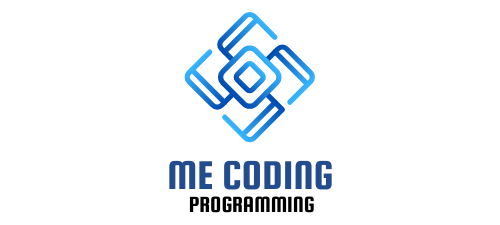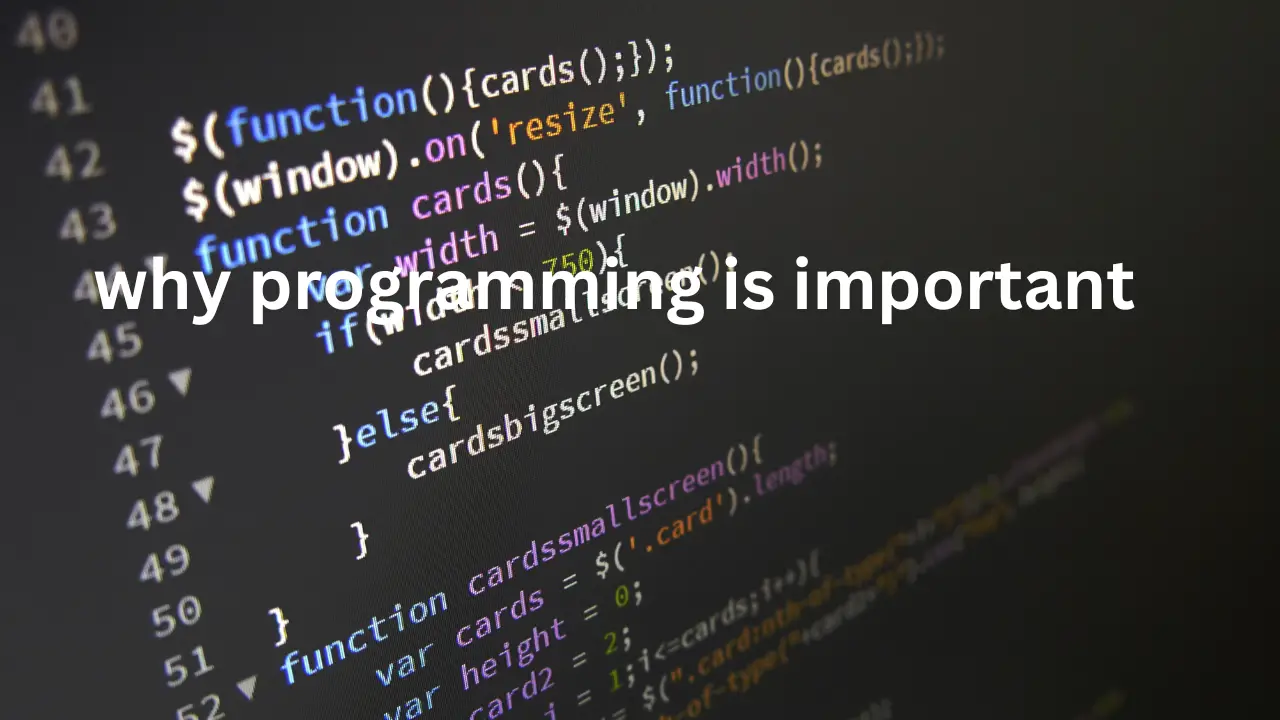In today’s digital landscape, programming has become an essential skill that empowers individuals to navigate and thrive in the ever-evolving world of technology. From web development to artificial intelligence, programming is the driving force behind countless innovations and advancements. In this article, we will explore the significance of programming, its impact on various fields, and how to embark on a journey of learning and mastering this valuable skill.
Introduction
In a world where technology permeates every aspect of our lives, understanding programming has become increasingly crucial. Programming is the art of instructing computers to perform specific tasks and solve complex problems through the use of programming languages. It enables us to create software, applications, and systems that revolutionize the way we live, work, and communicate.
Importance of Programming in the Digital Age
Enhancing Problem-Solving Skills
At its core, programming is all about solving problems. Whether it’s developing a new feature for a mobile app or streamlining business processes through automation, programming instills a systematic and analytical approach to problem-solving. By breaking down problems into smaller, manageable parts, programmers can devise elegant and efficient solutions.
Boosting Career Opportunities
Proficiency in programming opens doors to a vast array of career opportunities. In a world increasingly reliant on technology, companies across industries seek professionals who can code and develop innovative solutions. From software engineering to data science, programming skills are highly sought after and can lead to lucrative and fulfilling careers.
Fostering Creativity and Innovation
Programming is an art that empowers individuals to transform their ideas into reality. Through coding, developers can create captivating websites, interactive mobile applications, and even virtual reality experiences. Programming encourages creativity by enabling individuals to express their unique perspectives and bring their visions to life.
Facilitating Automation and Efficiency
Automation is revolutionizing the way we work, and programming lies at its core. By writing scripts and algorithms, programmers automate repetitive and time-consuming tasks, freeing up valuable human resources. From data processing to manufacturing, programming enables businesses to operate more efficiently and make the most of their resources.
Empowering Critical Thinking
Programming challenges individuals to think critically and approach problems from different angles. It requires logical reasoning, attention to detail, and the ability to anticipate potential pitfalls. By cultivating critical thinking skills, programming equips individuals with the tools to tackle complex challenges and devise optimal solutions.
Cultivating Computational Thinking
Computational thinking is a problem-solving approach that draws upon principles from computer science. Programming nurtures computational thinking by teaching individuals to break down complex problems, identify patterns, and devise algorithmic solutions. This cognitive skill is valuable not only in programming but also in various other disciplines.
Enabling Technology Integration
Programming allows seamless integration of technologies across different platforms and devices. From web development to IoT devices, programming languages serve as the bridge that connects hardware, software, and networks. By harnessing programming, developers can create interconnected systems that enhance user experiences and drive technological advancements.
Supporting Personal and Professional Growth
Learning programming extends beyond career prospects. It promotes personal growth by fostering discipline, logical reasoning, and perseverance. The process of mastering programming languages challenges individuals to continuously learn, adapt, and improve. These qualities translate into valuable life skills that can be applied in various domains.
Programming for Various Fields
Web Development
Web development relies heavily on programming languages like HTML, CSS, and JavaScript. Skilled web developers leverage these languages to create visually stunning and interactive websites. They design user interfaces, develop backend systems, and ensure smooth functionality, making the web accessible and engaging for users.
Mobile App Development
In the era of smartphones, mobile app development has gained immense popularity. Programming languages like Java, Kotlin, and Swift enable developers to build feature-rich applications for iOS and Android platforms. Mobile app developers create intuitive interfaces, integrate with various device functionalities, and deliver seamless user experiences.
Data Science and Artificial Intelligence
Data science and artificial intelligence are transforming industries by leveraging programming and advanced algorithms. Programming languages like Python and R enable data scientists to collect, analyze, and interpret vast amounts of data. Through machine learning and AI, programmers develop intelligent systems that make predictions, automate processes, and drive informed decision-making.
Game Development
Programming plays a central role in creating immersive and entertaining gaming experiences. Game developers utilize languages like C++, C#, and Unity to bring virtual worlds to life. By writing code for physics simulations, graphics rendering, and gameplay mechanics, programmers craft captivating games that captivate audiences worldwide.
Internet of Things (IoT)
The Internet of Things connects everyday objects to the digital realm, revolutionizing the way we interact with our environment. Programming languages like C and Python are crucial in developing IoT solutions. Programmers write code to control sensors, process data, and enable seamless communication between IoT devices, paving the way for a smarter and interconnected world.
Robotics
Programming is the backbone of robotics, enabling machines to perceive, reason, and act autonomously. From industrial automation to cutting-edge research, robotics relies on programming languages like Python, C++, and ROS (Robot Operating System). Programmers write algorithms that control robot movements, process sensor data, and enable human-robot interactions.
Programming Languages and Tools
Python
Python is a versatile and beginner-friendly programming language widely used in various domains. Known for its simplicity and readability, Python is an excellent choice for beginners. It has a vast ecosystem of libraries and frameworks, making it suitable for web development, data analysis, machine learning, and more.
JavaScript
JavaScript is the backbone of modern web development. It enables interactive and dynamic web experiences by adding functionality to web pages. JavaScript frameworks like React and Angular have gained significant popularity, empowering developers to create powerful web applications.
Java
Java is a robust and widely adopted programming language known for its cross-platform compatibility. It powers numerous enterprise applications, Android apps, and web services. With its strong community support and extensive libraries, Java remains a go-to choice for building scalable and secure software systems.
C++
C++ is a powerful programming language often used in system-level programming and resource-constrained environments. It provides low-level control over hardware and memory, making it suitable for performance-critical applications like game engines, operating systems, and embedded systems.
Ruby
Ruby is a dynamic and expressive language that emphasizes simplicity and productivity. It gained popularity with the Ruby on Rails framework, which simplifies web development and follows the convention-over-configuration principle. Ruby is favored by startups and developers who value elegant and readable code.
Learning Programming
Online Resources and Courses
The internet offers a wealth of resources to learn programming, ranging from interactive tutorials to comprehensive online courses. Platforms like Codecademy, Udemy, and Coursera provide structured learning paths for beginners and advanced learners alike. These resources offer hands-on exercises, projects, and assessments to reinforce learning.
Coding Bootcamps
Coding bootcamps provide intensive and immersive learning experiences for aspiring programmers. These short-term, intensive programs focus on practical skills and often lead to job placement opportunities. Bootcamps offer mentorship, collaborative projects, and real-world simulations to accelerate the learning process.
Learning Communities and Forums
Engaging with programming communities and forums can be highly beneficial. Platforms like Stack Overflow, GitHub, and Reddit provide spaces for programmers to share knowledge, seek help, and collaborate on projects. Participating in these communities fosters continuous learning and networking with like-minded individuals.
Project-Based Learning
Embarking on projects is an effective way to apply programming skills and deepen understanding. By working on real-world projects, individuals gain practical experience, learn problem-solving techniques, and build a portfolio of work. Project-based learning reinforces theoretical knowledge and prepares programmers for real-world challenges.
Continuous Practice and Learning
Programming is a skill that requires consistent practice and continuous learning. Regularly engaging in coding exercises, challenges, and personal projects hones programming abilities. Staying up-to-date with the latest industry trends, frameworks, and tools ensures relevance and growth as a programmer.
Overcoming Challenges in Programming
Fear of Failure
Programming can be intimidating, especially for beginners. Fear of failure often hinders progress and learning. Embracing a growth mindset, accepting failure as part of the learning process, and seeking support from the programming community can help overcome this challenge.
Complex Problem Solving
Programming involves tackling complex problems that may seem overwhelming at first. Breaking down problems into smaller parts, researching, and seeking alternative approaches can make problem-solving more manageable. Patience, perseverance, and a systematic approach are key to overcoming complex programming challenges.
Debugging and Troubleshooting
Debugging is an essential skill for programmers. Identifying and fixing errors requires attention to detail, patience, and the ability to think critically. Utilizing debugging tools, reading error messages, and seeking help from peers can expedite the process of troubleshooting.
Staying Up-to-Date with Technology
The technology landscape evolves rapidly, and staying updated is crucial for programmers. Following industry blogs, attending conferences, and joining relevant communities can help programmers stay abreast of the latest trends, frameworks, and best practices. Continuous learning ensures professional growth and adaptability.
Imposter Syndrome
Imposter syndrome, the feeling of inadequacy despite accomplishments, can affect programmers at any level. Recognizing one’s achievements, seeking feedback, and surrounding oneself with a supportive community can help alleviate imposter syndrome. Embracing continuous learning and focusing on personal growth can boost confidence.
Managing Time and Prioritization
Programming projects often involve multiple tasks and deadlines. Effective time management and prioritization skills are vital to success. Breaking down projects into manageable chunks, setting realistic goals, and utilizing project management tools can help programmers stay organized and meet deadlines.
Conclusion
In the digital age, programming plays a pivotal role in driving innovation, problem-solving, and technological advancements. It offers a plethora of career opportunities, fosters creativity, and equips individuals with critical thinking skills. Whether you aspire to be a web developer, data scientist, or game developer, learning programming can unlock doors to a world of possibilities. Embrace the challenges, embrace the rewards, and embark on an exciting journey of exploration, learning, and growth.
Frequently Asked Questions (FAQs)
Q1: Do I need prior programming experience to start learning? A: No, programming can be learned by anyone, regardless of prior experience. There are resources available for beginners that provide a solid foundation to build upon.
Q2: Which programming language should I learn first? A: The choice of programming language depends on your goals and interests. Python is often recommended for beginners due to its simplicity and versatility.
Q3: How long does it take to become proficient in programming? A: The time required to become proficient in programming varies depending on factors such as dedication, practice, and the complexity of the programming language. It’s a continuous learning process that improves with time and experience.
Q4: Can I learn programming on my own, or do I need to attend a coding bootcamp? A: You can learn programming on your own through online resources and courses. Coding bootcamps offer immersive learning experiences, which can be beneficial for some individuals seeking a structured and intensive program.
Q5: How can I overcome challenges and roadblocks while learning programming? A: Challenges are a natural part of learning programming. Embrace a growth mindset, seek help from the programming community, break down complex problems, and practice regularly. Remember that perseverance and continuous learning are key to overcoming challenges.

